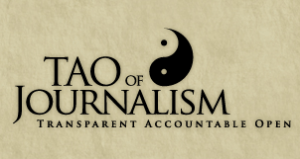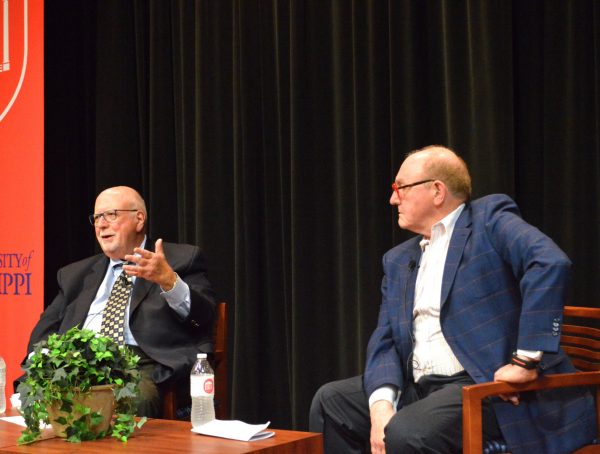 Transparency, accountability and openness are among the core values of journalism. They’re embodied in SPJ ethics code, after all, which thousands of journalists and news organizations subscribe to. So what would be the point of a pledge to support those three values–a pledge that comes with a new seal of approval?
Transparency, accountability and openness are among the core values of journalism. They’re embodied in SPJ ethics code, after all, which thousands of journalists and news organizations subscribe to. So what would be the point of a pledge to support those three values–a pledge that comes with a new seal of approval?
John Hamer of the Washington News Council came up with the idea as a way for journalists and newsrooms to make a public promise to their readers, listeners and viewers. He named it the Tao of Journalism (get it?) and set up a nonprofit to administer the voluntary pledge and copyrighted seal. The website’s FAQ says “a TAO pledge/seal is a way for journalists to publicly declare that they will live up to those basic principles as a way to earn trust.” And if they violate those principles?
The goal is to encourage the public to provide oversight and determine if TAO seal users are living up to the pledge. There will be no official oversight group, licensing body or regulatory association.
But there is a fee. The Tao of Journalism charges $25 a year for individuals and $50 for organizations to post the seal. So far, there are 20 names in the TAO directory, almost a third of them from outside the United States. It appears that only one signatory is from a major U.S. news organization–David Horsey, the editorial cartoonist at the Seattle P-I.
Hamer told Columbia Journalism Review earlier this year that he expected journalists to be wary. “The attitude is, ‘Nobody can oversee us, we oversee everyone else.’ When you think about it, it’s just a massive double standard.”
Maybe what journalists object to is being asked to pay for a seal that certifies their support of principles they already adhere to. The cost is low compared to the annual fee for other online “seals” like TRUSTe ($299 and up) and BBBOnline ($200 and up). But those well-established organizations require formal applications and questionnaires that have to be reviewed before a website is certified.
What’s your view of this initiative? Is it necessary? Would more journalists sign on if there were no fee attached?









16 Comments
No application, no oversight body, no rules…hmmm yeah I got $25 to throw away. Hell anybody can start up their own organization and throw out a official looking seal….press photog associations have been doing it for years. Pay your money and get NOTHING in return!
Professional journalists don’t need an ethics pledge. We need JOBS. Positions in which we can pursue our passion of WRITING through interviews, investigations and research. Or, as editors, effectively line edit what others have written.
Despite the current trend to post a job offer for what essentially is three jobs, while calling it multitasking, most journalists are not graphic artists, nor did they pursue that course of study. However, in this brave, new world in which writers and editorial content has been devalued; young bloggers are accepting $2 for a 500-word article that typically pays $200 –– just to see their byline in print. While in the newsroom, which once reported actual NEWS, pictures are now worth much more than 1,000 words and take precedence over editorial content.
Thus, we can only surmise the only “journalists” being hired are young designer/paginators for whom true reporting and writing is
a side hobby. And for this we need an ethics pledge? Give me a break. It’s little wonder newspapers are going down the tube, a descent that began when bean counters took over publishing, pushing a product instead of a community service.